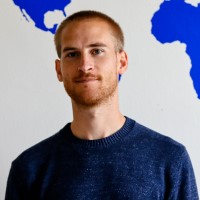
The project ‘Potential Role of the Transboundary Ramotswa Aquifer’ (RAMOTSWA project) focusses on one of the most important shared aquifers in the Limpopo Basin: The Ramotswa Aquifer which is shared between Botswana and South Africa. The project aims to develop a scientifically informed, integrated and participatory strategy to support equitable access to water and balancing urban and rural needs with ecosystem requirements under increased pressures on the already limited water resources: Increase in population and development, pollution of groundwater and a changing climate. In addition, the project aims to reduce climate vulnerability by promoting adaptation strategies for integrated, transboundary water resource management.
The RAMOTSWA project is a component of the Resilience in the Limpopo Basin Program (RESILIM) funded by USAID. RESILIM supports the riparian countries of the basin (Botswana, Mozambique, South Africa, Zambia) in their efforts to improve shared management of water resources and equitably address the economic, environmental, and social needs of each country, thereby enhancing the resilience of the ecosystems and the people. Leading partner in the RAMOTSWA project is the International Water Management Institute (IWMI). IGRAC’s contribution to the project focusses on the information management component of the project.
Over-all Project Objectives
The overall objective of the RAMOTSWA Project is to support a shared vision and cooperation in sustainably exploiting the shared groundwater resources of the Ramotswa Transboundary Aquifer. The project facilitates joint management and better groundwater governance of the aquifer. Specifically, it aims to:
- Increase awareness of the importance and vulnerability of the transboundary Ramotswa Aquifer.
- Improve understanding of the socio-economic importance of the aquifer area, and the challenges in water access and security across the population.
- Assess the extent and hydrogeology of the transboundary aquifer resources under present and future climate and population projections.
- Develop human and institutional capacity for shared and harmonized management and monitoring of groundwater resources.
- Develop tools for shared and harmonized management and monitoring of groundwater resources, aligned with the national water resources management processes.
- Establish national and cross-border dialogue and cooperation on the Ramotswa Aquifer, and further encourage international cooperation on transboundary aquifers in the Southern African Development Community (SADC) region.
Key Components Phase II
- Hydrogeological modelling works towards understanding of recharge and water withdrawal in the aquifer area in order to enable prediction of future impacts of changes in water use and storage
- Managed Aquifer Recharge (MAR) potential examines potential for MAR in the aquifer area, including determination suitable locations, volumes and sources of MAR.
- Agricultural Water Solutions seeks to strengthen agricultural water productivity in the aquifer area through the use of two technologies – Wetting Front Detector and Chameleon.
- Ramotswa Information Management Systems (RIMS) seeks to compile, house and display mappable data from the Ramotswa Aquifer.
- Joint Strategic Action Plan (JSAP) is being undertaken to identify and prioritize investments and actions that can be pursued to enhance the benefits derived from the Ramotswa transboundary aquifer.
Role of IGRAC
Within the RAMOTSWA project IGRAC is responsible for the development of a joint information management system (IMS) and to train the local experts to work with the system.
Together with IMWI and other partners, IGRAC provides guidance and support in the aquifer assessment, transboundary diagnostic and to the development of a strategic action plan to improve integrated water management (incl. groundwater and improved waste water management) and to improve multi-stakeholder engagement. Training on groundwater assessment and management is an integral part of the project.







